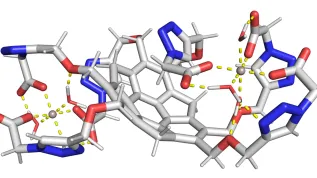
Obtaining plant varieties with greater resilience to changes in environmental conditions is one of the postulates of an international team of plant biology scientists, operating under the name PlantACT!
The PlantACT! (Plants for Climate Action) initiative was launched during last year's scientific conference of the European Molecular Biology Organization (EMBO). It brings together scientists from leading European research centres, mainly plant biology experts. The aim of the project is to conduct interdisciplinary scientific research and educate the public on climate change.
The PlantACT! team recently published a report to present postulates indicating how and in which areas researchers can contribute to finding immediate, medium-term and long-term solutions to climate issues, as well as what changes are necessary to implement these solutions at the personal, institutional and financial levels.
'The report highlights the humanity's urgent challenge posed by climate change. Over 150 years, the concentration of carbon dioxide in the atmosphere has increased dramatically from 280 ppm (pre-industrial period) to 420 ppm, resulting in an increase in global average temperature by 1.5 degrees Celsius. This anthropogenic climate change affects crop production and food security, and thereby threatens the foundations of human civilization. The International Panel on Climate Change (IPCC) aims to limit global warming to less than 1.5 degrees C, but achieving climate neutrality by reducing net CO2 emissions to zero with 45% of CO2 emission reduction over the next 10 years is now more important than ever', emphasises team member, Dr. Agata Daszkowska-Golec, a professor at the Faculty of Natural Sciences of the University of Silesia.
The authors of the report mention the contribution of agriculture to climate change and the need to reduce greenhouse gas emissions from agriculture. 'We suggest several short-term agronomic solutions, such as changing farming practices, rotating crops to adjust to water availability, and adapting sowing dates to temperature and rainfall patterns. In the teams that are part of PlantACT! we are currently conducting many scientific activities in collaboration with plant breeding stations to develop and verify new solutions', Daszkowska-Golec points out.
According to the scientists, it is also necessary to develop crop varieties that would ensure food security in the context of climate change. 'Our report discusses the importance of developing plant varieties suitable for new agricultural systems and the need for an interdisciplinary approach to finding novel solutions to climate change. Plant scientists can contribute to generating crop varieties that show increased resistance to high temperatures and drought, and generally improved resistance to changes in environmental conditions', the researcher says.
'The development of new plant varieties will require a return to local varieties, rare breeds and closely related wild relatives of cultivated species, which in turn will have a positive impact on the disappearing biodiversity, in this case - at the level of the genetic pool diversity', believes Daszkowska-Golec.
In addition, the authors of the report point out that the fight against climate change requires the use of crop systems, both those already available but not widely used, and new ones still to be developed, and the development of plant varieties suitable for these new systems.
The researchers also highlight the challenges facing global food production, including a growing population, changing dietary patterns towards greater meat consumption, and an increase in wasting food both at the consumer level and in the supply chain.
'We conclude the article by stating that in order to preserve a healthy planet, we must leave our well-trodden disciplinary paths behind and seek innovative, interdisciplinary solutions and approaches. In addition, national programs and transnational research funding schemes should be implemented to develop or adapt solutions to local conditions. PlantACT! aims to urgently accelerate these new interdisciplinary interactions and solutions by stimulating new forms of work and funding', concludes Agata Daszkowska-Golec.
The report is available on the website of the journal Trends in Plant Science.
PAP - Science in Poland, Agnieszka Kliks-Pudlik
akp/ bar/
tr. RL













